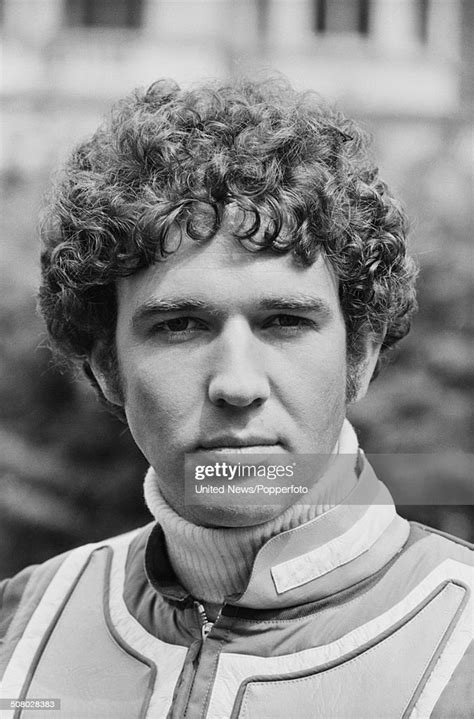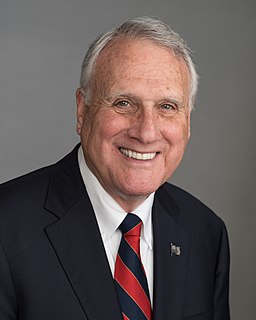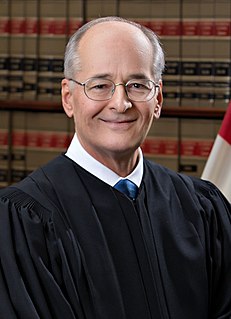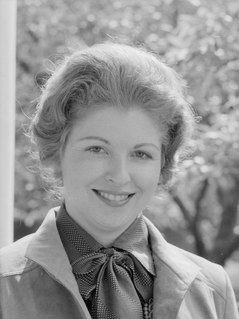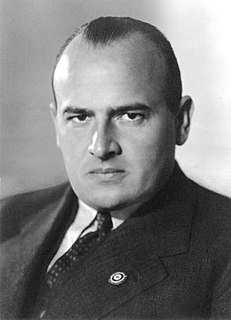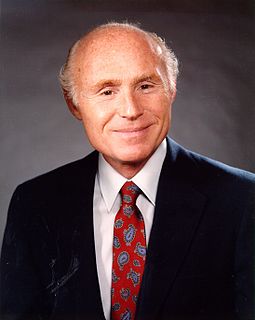A Quote by David Souter
The obligation of any judge is to decide the case before the court, and the nature of the issue presented will largely determine the appropriate scope of the principle on which its decision should rest.
Related Quotes
We feel that our actions are voluntary when they follow a decision and involuntary when they happen without decision. But if a decision itself were voluntary every decision would have to be preceded by a decision to decide - An infinite regression which fortunately does not occur. Oddly enough, if we had to decide to decide, we would not be free to decide
Judges decide upon copyright law. They decide upon trademark law. They decide upon scientific issues. They decide upon very complex technical issues on a daily basis. So you must have confidence in the Supreme Court, that they will apply their mind and they will come out with a decision consistent with the Constitution.
The Supreme Court, or any court, when they make a decision, if that's a published
decision, it becomes virtually like a statute. Everybody is suppose to follow that law. Whether I decide to allow a law to become a law without my signature is simply
in effect expressing a view that while I don't particularly care for this, the Legislature passed it, it was an overwhelming.
vote, or maybe there were other reasons. But
my decision not to sign doesn't have to be followed by
everybody from that point on
We are not here to advocate abortion. We do not ask this Court to rule that abortion is good or desirable in any particular situation. We are here to advocate that the decision as to whether or not a particular woman will continue to carry or will terminate a pregnancy is a decision that should be made by that individual. That, in fact, she has a constitutional right to make that decision for herself and that the state has shown no interest in interfering with that decision
There is no independence of law against National Socialism. Say to yourselves at every decision which you make: "How would the Führer decide in my place?" In every decision ask yourselves: "Is this decision compatible with the National Socialist conscience of the German people?" Then you will have a firm iron foundation which, allied with the unity of the National Socialist People's State and with your recognition of the eternal nature of the will of Adolf Hitler, will endow your own sphere of decision with the authority of the Third Reich, and this for all time.
You should take a good look at all sides of an issue before making a decision. Put something away in case of an emergency. New neighbors will bring good cheer. A small problem may occur at home base, but you will solve it quickly and correctly. Don't offer smart advice unless you are really asked to comment.
If confirmed, [Judge of the Supreme Court] will write the words that will either broaden or narrow our rights for the rest of your working life. You will be interpreting the Constitution in which we as a people place our faith and on which our freedoms as a nation rest. And on a daily basis, the words of your opinions will affect countless individuals as they seek protection behind the courthouse doors.
The time is here for you to stand up for what you know is right. You must judge right from wrong. No longer can you be complacent or go with the flow or wonder what to do. You must decide now which path you will follow and which answer you will give. Decide well in advance, before the pressure is on, what you stand for.


